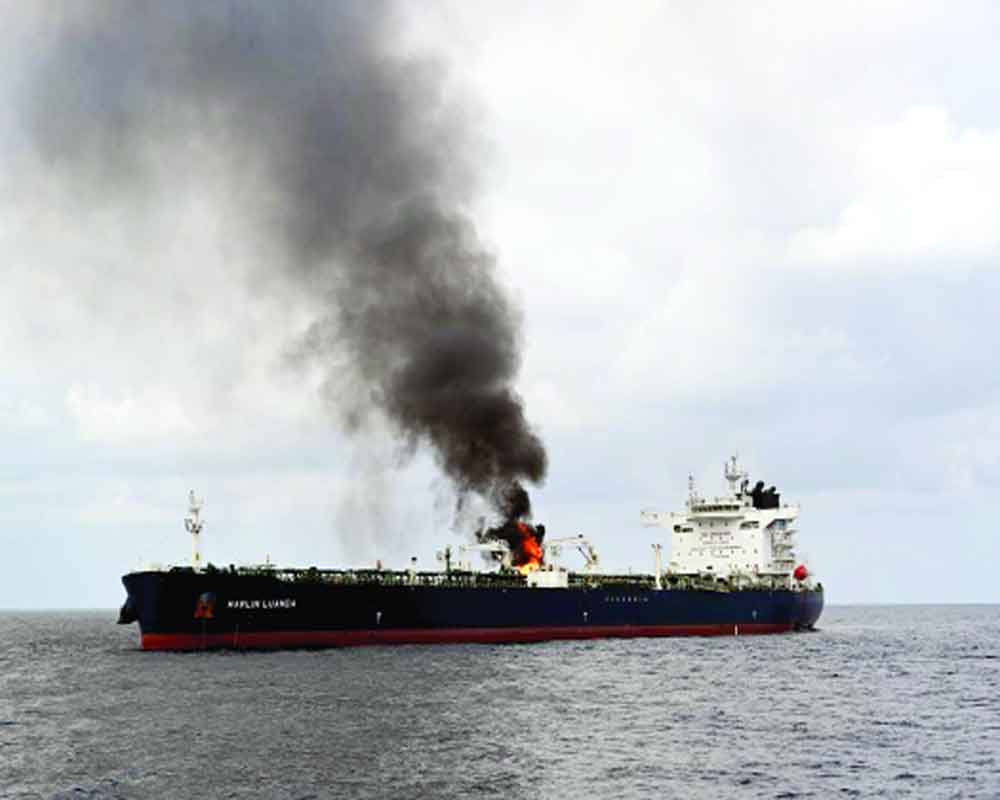The spectre of escalating tensions in West Asia casts a shadow that extends far beyond; if steps are not taken now, it would be a catastrophe on global scale
The recent series of Houthi attacks, ongoing skirmishes between Israel and Hamas, and mounting tensions over the UNRWA's involvement in the October 7, 2023, attack on Israel have reignited concerns about the prospects for peace and negotiation in the volatile region of West Asia. As Israel continues to deny accusations, the coming days are poised to present defining moments for the peace prospects in the area.
Efforts to Resolve the Conflict:
Various initiatives have been undertaken to quell the long-standing regional conflict. The President of the International Court of Justice (ICJ), Mr. Joan E. Donoghue, called on Israel to halt its strikes across Gaza, offering a glimmer of hope. However, the situation remains dire, with the West Asian Conflict having already claimed over 26,000 lives and caused substantial devastation in recent months.
Palestinian Prime Minister Mohammed Shtayyeh has urged an immediate end to Israel's offences and called for an expedited relief operation to save lives. The Houthis' increasing support for the Palestinian cause, coupled with their recent attacks on Israel in the Red Sea, has further heightened tensions. The backing from Hamas and Hezbollah for the Houthis raises concerns about the expanding web of terror and conflict in the Red Sea, affecting trade, commercial interests, and maritime security in the Indian Ocean Area.
India's Stance:
India, expressing concern for regional peace, has consistently called for the de-escalation of violence and emphasized the importance of negotiations. India advocates for peaceful coexistence by respecting Israel's security needs while fostering an international environment for Palestine to exist independently and securely.
The United States is also apprehensive about the rising tensions in the region. However, recent trends indicate the difficulty in persuading Hamas to abandon its plans for further strikes on Israel, considering its history of attacks, including the ruthless assault on October 7, 2023, which claimed over 1,200 Israeli lives.
Challenges Faced by Israel:
Israel's preparedness to counter new and unexpected forms of attacks, such as kidnappings and chemical assaults, relies heavily on gathering comprehensive intelligence daily. Both the U.S. and Israel have designated Hamas as a terrorist organization, complicating the situation further, given Hamas's refusal to recognize Israel's right as a state and its territorial claims.
The Struggle for Peace:
Hamas enjoys a significant advantage due to political, military, and local factors. The Palestinians' desire for Israel's withdrawal from the West Bank and Gaza Strip, coupled with Hamas's military capabilities and ideological mobilization at the grassroots level, poses a formidable challenge.
The Historical Context:
The conflict between Israel and Palestine has deep historical roots, with both sides gradually realizing the necessity of a two-state solution for survival. While initial agreements, such as the Oslo Peace Accord in 2007, provided a ray of hope, subsequent developments, including ongoing Israeli attacks, have jeopardized the peace process. The existence of separate governments in the West Bank and Gaza Strip has complicated matters.
Challenges to Mediation:
Efforts towards negotiations must address complex issues, including settlement disputes, security concerns, education, water, refugees, and other vital aspects. The international community, especially Islamic nations, must carefully navigate the delicate situation to prevent the region from turning into a battlefield.
Peter T. Coleman's perspective on polarized conflicts suggests that understanding the system as a whole is crucial for finding a resolution. Awareness of the context and detailed considerations of the stakeholders' positions can pave the way for more effective mediation efforts. The current escalation of tensions in West Asia demands careful handling and diplomatic efforts to navigate the intricate landscape. As the world watches these critical developments, the need for comprehensive and nuanced approaches to peace remains paramount. The global community must work towards establishing a permanent link between Israel and Palestine, fostering an environment where negotiations can address underlying issues,
In the face of extreme circumstances and the seeming absence of hope for reconciliation, addressing the root causes of the conflict becomes paramount. The ongoing violence necessitates a comprehensive approach, delving into minute details to understand and resolve the multifaceted challenges at play. As efforts for mediation intensify on a global scale, a nuanced and all-encompassing strategy is required to address the intricacies of the Israel-Palestine crisis.
Key issues such as resolving settlement disputes, ensuring security, providing essential services like food and education, addressing water concerns, handling the refugee problem, and seeking amicable solutions through peaceful negotiations must be central to any diplomatic initiatives. International support, particularly from Islamic countries, can play a pivotal role in guiding the region toward a more stable and secure future. Despite past agreements and hopeful moments, the persistent challenges have made the situation increasingly complex. Yet, as the region grapples with the aftermath of recent events, there is an opportunity for the global community to reevaluate and reinvigorate efforts towards lasting peace in West Asia.
(The writer is a recipient of the Bharat Gaurav award and is a professor and expert on strategic affairs; views are personal)


























